On World Press Freedom Day, the Committee to Protect Journalists is highlighting 10 emblematic cases of journalists in prison, silenced by authorities in retaliation for their work. CPJ is calling on authorities to release these journalists, as well as all others being held in relation to their work.
On World Press Freedom Day, the Committee to Protect Journalists is highlighting 10 emblematic cases of journalists in prison, silenced by authorities in retaliation for their work. CPJ is calling on authorities to release these journalists, as well as all others being held in relation to their work.
Bekjanov, Ghaderi, and Hai were convicted on anti-state charges, an allegation used frequently by authoritarian regimes seeking to silence critical news coverage, according to CPJ research. CPJ research has documented a rise in the jailing of journalists since 2000, a year before the September 11 terrorist attacks on the United States fueled the global expansion of anti-terrorism and national security laws. Governments have exploited these laws to silence critical journalists covering sensitive issues such as insurgencies, political opposition, and ethnic minorities. Of the 211 journalists in jail at the time of CPJ’s most recent prison census, 124, or 60 percent, were jailed on anti-state charges—far more than jailed on any other type of charge.
CPJ believes that no journalist should be imprisoned for doing their job. You, too, can add your voice. Join with CPJ in calling on authorities in repressive countries to #FreeThePress and release all journalists held for no other crime than covering issues in the public interest.
All of the key facts listed in this report have been sourced from CPJ’s annual prison census and other research.
Ten Emblematic Cases of Journalists in Prison
1. Avaz Zeynally, Azerbaijan
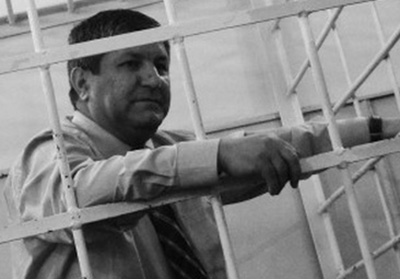
IRFS
Affiliation: Khural
Prison term: 9 years
Charges: Retaliatory
Held at: Unknown
Avaz Zeynally, editor of the independent daily Khural, was arrested in October 2011 after being accused by then-parliament member Gyuler Akhmedova of bribery and extortion. Zeynally denied the allegations and said Akhmedova had tried to bribe him in exchange for his paper’s loyalty and that he had refused. In March 2013, he was sentenced to nine years in jail on charges including tax evasion, bribery, and extortion. Several months later, Akhmedova herself was imprisoned on swindling charges in an unrelated case. CPJbelieves Zeynally’s conviction was in retaliation for his articles in Khural that were especially critical of the government. Weeks before he was arrested, Khural had criticized President Ilham Aliyev’s repressive policies toward independent journalists and opposition activists. The journalist’s health has deteriorated in prison, according to the Baku-based Institute for Reporters’ Freedom and Safety.
Azerbaijan is scheduled to assume rotating chairmanship this month of the Strasbourg-based Council of Europe. Members of the council have signed on to the European Convention on Human Rights, a treaty designed to protect human rights, democracy, and the rule of law.
Key fact: Of the 211 journalists jailed around the world, 28—or 13 percent—of them were held on retaliatory charges.
Key work: Watch a video interview with Zeynally.
Take action:
- Use the hashtags #FreeThePress, #CouncilOfEurope, #EUCouncil, #EUCO.
- Tweet a message of support to the Council of Europe, Nils Muiznieks, CoE commissioner for human rights, and Daniel Holtgen, Council of Europe director of communications and spokesman for Secretary-General Thorbjørn Jagland.
- Call on the Azerbaijan Foreign Ministry to free Zeynally.
- Watch a video of journalists and civil society activists advocating for Zeynally’s release.
2. Ahmed Humaidan, Bahrain
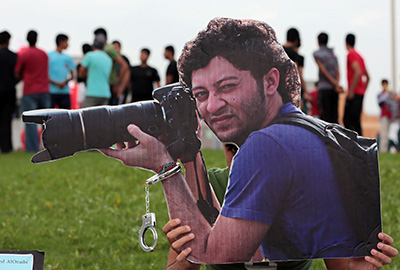
AP
Affiliation: Freelance
Prison term: 10 years
Charges: Retaliatory
Held at: Jaw Central Prison
In late March, a Bahraini court sentenced Ahmed Humaidan to 10 years in jail. The award-winning freelance photographer, who was convicted on charges of participating in an attack on a police station, has been imprisoned since December 2012. His family said authorities sought his arrest for months and raided his home five times in an attempt to arrest him. But Humaidan, whose images have exposed police attacks on protesters during demonstrations, was at the police station simply to document the attack, according to local human rights groups. CPJ and other rights organizations believe his arrest is part of a larger campaign by Bahraini authorities to censor independent and dissident voices in the country.
Key fact: A third of journalists jailed around the world are freelancers.
Key work: Many of Humaidan’s photographs are on his Instagram page.
Take action:
3. Ilham Tohti, China
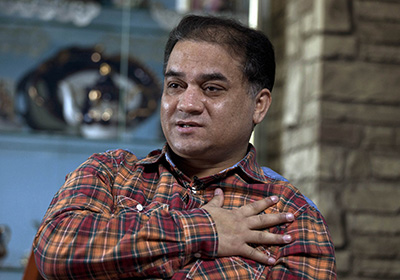
AP
Affiliation: Uighurbiz
Prison term: Pre-trial detention
Charges: Anti-state
Held at: Urumqi PSB (Public Security Bureau) Detention Center
Ilham Tohti, a Uighur academic based in Beijing and founder of the news websiteUighurbiz, was arrested at his home in January and held incommunicado and without charge until late February, when his wife learned of his whereabouts. He has been accused of fomenting ethnic hatred through articles in Uighurbiz, which criticized China’s treatment of Uighurs and expressed concern about pressure on the ethnic minority after Uighur separatists were blamed for a deadly attack in Beijing in October. He was latercharged with separatism; if convicted, he faces between 10 years and a life term—or even a death sentence, his lawyer said. On April 8, Tohti’s daughter, Jewher Ilham,spoke to the U.S. Congress about her father’s imprisonment and said her family was under 24-hour surveillance.
Six months before he was arrested, Tohti recorded an interview with the U.S.-funded Radio Free Asia that he asked to be publicized if he were to be detained. In the interview, he said: “I have relied only on pen and paper to diplomatically request the human rights, legal rights, and autonomous regional rights for the Uighurs. … I am almost confident that the Chinese government is trying to get rid of me this time.”
On March 31, Tohti was honored with the Freedom to Write Award by the PEN American Center.
Key fact: At least 50 percent of journalists imprisoned in China in 2013 were ethnic minorities.
Key work: Tohti’s autobiographical essay, “My Ideals and the Career Path I Have Chosen,” written in January 2011, is available in English.
Take action:
4. Mahmoud Abou Zeid, Egypt
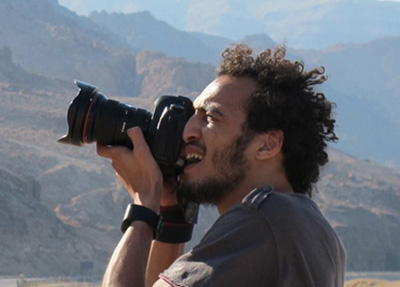
Facebook/Freedom for Shawkan
Affiliation: Freelance
Prison term: Pre-trial detention
Charges: No charges
Held at: Tora Prison
Mahmoud Abou Zeid, a freelance photographer who is known professionally as Shawkan, was one of several journalists detained in Cairo while covering clashes between Egyptian security forces and supporters of ousted President Mohamed Morsi on August 14, 2013, according to news reports. Abou Zeid, who has contributed to local and international websites, has been accused of illegal assembly, murder, attempted murder, and possessing weapons—the same allegations levied against hundreds of protesters detained during the clashes last summer. No charges have been filed against Abou Zeid, but his appeal for release has been denied. His pretrial detention has been extendedseveral times.
The photographer has contributed to the U.K.-based citizen journalism site and photo agency Demotix and digital media company Corbis. After he was detained, Demotix sent a letter to Egyptian authorities confirming that Abou Zeid was covering the clashes for the agency, the photographer’s brother, Mohamed Abou Zeid, told CPJ.
Key fact: In 2012, no journalists were in prison in Egypt, compared with five in late 2013.
Key works:
- A source close to Abou Zeid snuck out his written account from Tora Prison for an article published on March 3.
- Abou Zeid’s profile page at Demotix features several of his photos.
Take action:
5. Dawit Isaac, Eritrea
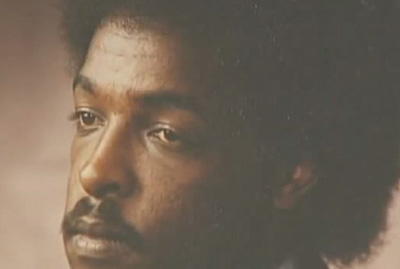
YouTube
Affiliation: Setit
Prison term: Held without trial since 2001
Charges: None
Held at: Eiraeiro Prison (unconfirmed)
Dawit Isaac, the Swedish-Eritrean co-founder of Setit, once Eritrea’s largest newspaper, was imprisoned in September 2001 as part of a broad government crackdown on the press. Aside from a brief furlough in 2005—for “medical tests,” authorities said—noinformation on the journalist’s whereabouts or legal status has been made available. When asked about Dawit’s crime in 2009, Eritrean President Isaias Afewerki said “I don’t know” before saying the journalist had made a “big mistake.” The president did not offer further details. In 2010, an individual who claimed to have been a guard in Eiraeiro Prison said the award-winning journalist was there, in poor physical and mental health.
Dawit’s brother, Esayas Isaac, has run a campaign, “Free Dawit,” advocating for his release. In 2010, Esayas told CPJ: “We all thought it was a temporary battle—no one believed he would be imprisoned for so long. But we still continue to fight.”
Key fact: More than 20 percent—one in five—of journalists in prison are held without charge.
Key work: Read an excerpt from one of the last articles published in Setit in June 2001. (Click here for a PDF in Eritrean.)
Take action:
6. Reeyot Alemu, Ethiopia
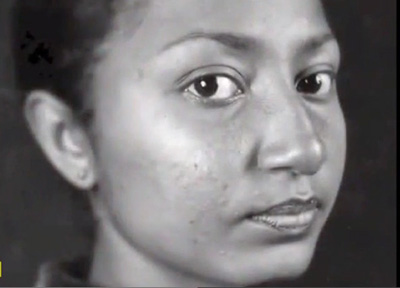
YouTube/MBV Channel
Affiliation: Freelance
Prison term: 5 years
Charges: Anti-state
Held at: Kality Prison
Reeyot Alemu was one of the first journalists arrested in a 2011 crackdown on dissent as authorities feared a popular uprising inspired by the Arab Spring. In January 2012, she was sentenced to 14 years in prison on trumped-up terrorism charges, but the term was reduced on appeal a few months later to five years. CPJ believes her conviction is in connection with critical columns she wrote for the leading independent weekly Feteh. Authorities threatened Reeyot with solitary confinement and she waged a hunger strike to protest restrictions on visits from family and friends. Her health has deteriorated severely in prison, but she is pursuing an international legal appeal against her conviction.
In 2013, Reeyot was awarded the UNESCO/Guillermo Cano World Press Freedom Prize in recognition of her courage and commitment to freedom of expression. In 2012, shereceived the Courage in Journalism Award by the International Women’s Media Foundation (IWMF).
Key fact: Almost 60 percent of journalists behind bars in 2013 were jailed on anti-state charges such as subversion or terrorism.
Key works:
Take action:
7. Siamak Ghaderi, Iran
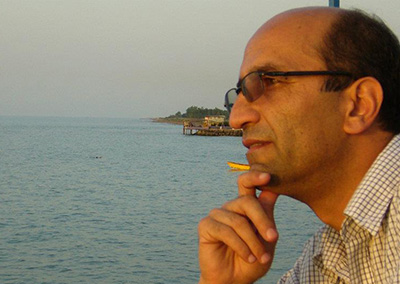
Facebook
Affiliation: Freelance
Prison term: 4 years
Charges: Anti-state
Held at: Evin Prison
Siamak Ghaderi made international headlines when he chose to rebut then-President Mahmoud Ahmedinejad’s claim in 2007 that there were no homosexuals in Iran by publishing online his own interviews with several Iranian homosexuals. He later set up his own blog, called IRNA-ye maa (Our IRNA), in which he covered street protests and other developments following the contested 2009 presidential election. In July 2010, he was arrested and, in January 2011, sentenced to four years in prison on charges of “propagating against the regime,” “creating public anxiety,” and “spreading falsehoods.” Pro-government news websites—including Rasekhoon and Haghighat News—called him a “seditionist” who was arrested for “immoral” acts. His blog was repeatedly blocked by authorities before he was detained, reports said.
Ghaderi’s wife told the International Campaign for Human Rights in Iran in May 2013 that Ghaderi had not been allowed a single day of furlough and that he had received lashes in prison. In another interview, she said he had told her, “Live your life. Most of [my sentence] has passed and only some of it is left, which I will endure.”
Key fact: Iran has been one of the top three leading jailers of journalists for the past five years.
Key work: In this article, Ghaderi describes atrocities committed in Kahrizak Detention Center.
Take action:
8. Fusün Erdoğan, Turkey
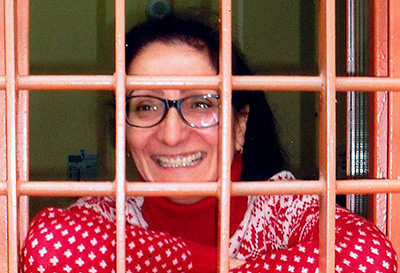
AFP
Affiliation: Özgür Radyo
Prison term: Life
Charges: Anti-state
Held at: Gebze Women’s Closed Prison
Fusün Erdoğan, former general manager of the leftist Özgür Radyo (The Free Radio), was imprisoned for more than seven years before being sentenced in November 2013 to life in prison on anti-state charges. Authorities said she used radio station assets to support the Marxist Leninist Communist Party, or MLKP, which is banned in Turkey. The only evidence against her was a 40-page document that supposedly included the names and personal information of members of the MLKP. Her case is currently before the Court of Appeals.
In January 2013, Erdoğan, who holds Dutch and Turkish citizenship, wrote a letter from prison that detailed her arrest, her imprisonment without charge, and her legal status. She also said her health has deteriorated significantly while in prison: In addition to high blood pressure, hepatitis B, and cysts in both breasts, she was diagnosed with thyroid cancer in November 2012 and underwent surgery.
Key fact: Turkey was the world’s leading jailer of journalists in 2012 and 2013. The country released more than a dozen journalists from jail in 2014.
Key work: Erdoğan’s letter from prison describes her arrest, imprisonment, and legal status.
Take action:
9. Muhammad Bekjanov, Uzbekistan
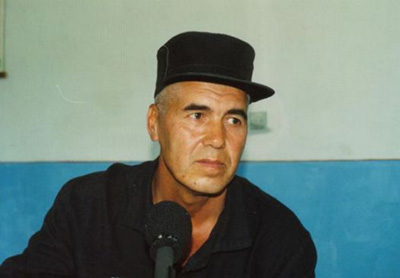
Galima Bukharbaeva
Affiliation: Erk
Prison term: 19 years
Charges: Anti-state
Held at: Prison Colony 64/51
In January 2012, shortly before Muhammad Bekjanov was scheduled to finish his 15-year jail term on anti-state charges, Uzbek authorities sentenced him to another five years for allegedly violating prison rules that they never specified. The term was later reduced to four years. The editor of the banned opposition newspaper Erk and a reporter for the paper, Yusuf Ruzimuradov, were first detained in Ukraine in 1999 and extradited at the request of Uzbek authorities. Both were convicted on charges including publishing and distributing a banned newspaper, participating in a banned political protest, and attempting to overthrow the regime. They were tortured before the trial began, according to CPJ research and news reports.
Bekjanov and Ruzimuradov have been jailed longer than any other reporter worldwide, according to CPJ research.
Bekjanov’s wife, Nina Bekjanova, told journalists that the editor’s health had deteriorated when she visited him in prison in March 2013. She said he needed treatment for a hernia and a relapse of tuberculosis, and that he told her, “There’s not much longer left [for me] to suffer.”
Key fact: Bekjanov and his Erk colleague are the two longest-imprisoned journalists worldwide. They have been in jail since before the birth of social media.
Key work: In an interview with IWPR, Bekjanov describes his imprisonment.
Take action:
- Use the hashtags #FreeThePress, #SocialMedia.
- Tweet a message of support to Muhammad Salih, founder of the Erk party and Bekjanov’s brother.
- Tweet a message of support to Dunja Mijatovic, OSCE Representative on Freedom of the Media.
- Sign a petition to free political prisoners in Uzbekistan.
10. Nguyen Van Hai (Dieu Cay), Vietnam
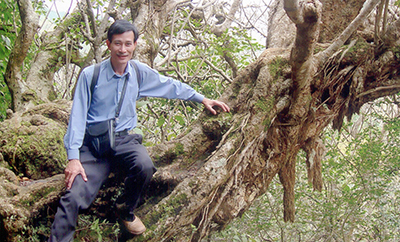
Free Journalists Network of Vietnam
Affiliation: Freelance
Prison term: 12 years
Charges: Anti-state
Held at: Thanh Chuong District Prison No. 6
Nguyen Van Hai, a Vietnamese blogger who is better known by his penname Dieu Cay, could barely walk and talk and was hardly recognizable to his family during their five-minute prison visit in July 2013. The blogger has waged at least two hunger strikes to protest prison treatment and was placed in solitary confinement when he refused to sign a confession for the anti-state offenses on which he was convicted. Dieu Cay is serving 12 years in prison for “conducting propaganda,” a term given to him in 2010 after he finished serving a 2.5-year jail sentence for tax evasion. Rights groups including CPJ believe the charges against the blogger are in connection with his blog, Dieu Cay, which frequently touched on politically sensitive issues, including government corruption and national protests against China. In 2013, CPJ started a petition advocating for hisrelease, which was signed by more than 10,000 people, and honored him with its 2013International Press Freedom Award.
Two years ago, on World Press Freedom Day in 2012, U.S. President Barack Obamacondemned the imprisonment of journalists around the world, and said, “We must not forget others like blogger Dieu Cay.”
Key fact: Online journalists accounted for half of the 211 journalists imprisoned around the world.
Key works:
- Hai’s original website has been shut down, but material is reposted at Dieu Cay.
- The site he co-founded, Free Journalists Club, has been shut down, but material is reposted here.
- The journalist’s family recently gave CPJ an account of a prison visit with Hai.
Take action:
- Use the hashtags #FreeThePress and #FreeDieuCay.
- Call on Vietnamese President Truong Tan Sang on Twitter and Facebook to free Hai.
- Watch a video about Hai by his son.
Shazdeh Omari is CPJ’s news editor. Former copy chief for The Village Voice, she has worked as a reporter and editor in the United States and Greece. Omari was born in Saudi Arabia and raised in Karachi, Pakistan, where she learned to read, speak, and write Urdu.
Height Insoles: Hi, I do believe this is an excellent site. I stumbledupon …
http://fishinglovers.net: Appreciate you sharing, great post.Thanks Again. Keep writi…
Achilles Pain causes: Every weekend i used to pay a quick visit this site, as i w…






April 30, 2014
Ten journalists to free from prison
by HR Defender • Nguyen Van Hai
CPJ | April 29, 2014
On World Press Freedom Day,
CPJ calls for the release of all jailed journalists
Al-Jazeera journalist Peter Greste is in prison in Egypt on charges of supporting the Muslim Brotherhood. (AFP/Khaled Desouki)
By Shazdeh Omari/CPJ News Editor
New York, April 29, 2014—Uzbek editor Muhammad Bekjanov has been in jail for 15 years, one of the longest imprisonments of journalists worldwide. Prominent Iranian journalist Siamak Ghaderi was imprisoned in 2010 and has been beaten and whipped in custody. Vietnamese blogger Nguyen Van Hai, serving a 12-year jail term, could barely walk or talk during a prison visit in July 2013, his family said.
More on This Issue
• 2013 prison census
• Infographic
On World Press Freedom Day, the Committee to Protect Journalists is highlighting 10 emblematic cases of journalists in prison, silenced by authorities in retaliation for their work. CPJ is calling on authorities to release these journalists, as well as all others being held in relation to their work.
Bekjanov, Ghaderi, and Hai were convicted on anti-state charges, an allegation used frequently by authoritarian regimes seeking to silence critical news coverage, according to CPJ research. CPJ research has documented a rise in the jailing of journalists since 2000, a year before the September 11 terrorist attacks on the United States fueled the global expansion of anti-terrorism and national security laws. Governments have exploited these laws to silence critical journalists covering sensitive issues such as insurgencies, political opposition, and ethnic minorities. Of the 211 journalists in jail at the time of CPJ’s most recent prison census, 124, or 60 percent, were jailed on anti-state charges—far more than jailed on any other type of charge.
CPJ believes that no journalist should be imprisoned for doing their job. You, too, can add your voice. Join with CPJ in calling on authorities in repressive countries to #FreeThePress and release all journalists held for no other crime than covering issues in the public interest.
All of the key facts listed in this report have been sourced from CPJ’s annual prison census and other research.
Ten Emblematic Cases of Journalists in Prison
1. Avaz Zeynally, Azerbaijan
IRFS
Affiliation: Khural
Prison term: 9 years
Charges: Retaliatory
Held at: Unknown
Avaz Zeynally, editor of the independent daily Khural, was arrested in October 2011 after being accused by then-parliament member Gyuler Akhmedova of bribery and extortion. Zeynally denied the allegations and said Akhmedova had tried to bribe him in exchange for his paper’s loyalty and that he had refused. In March 2013, he was sentenced to nine years in jail on charges including tax evasion, bribery, and extortion. Several months later, Akhmedova herself was imprisoned on swindling charges in an unrelated case. CPJbelieves Zeynally’s conviction was in retaliation for his articles in Khural that were especially critical of the government. Weeks before he was arrested, Khural had criticized President Ilham Aliyev’s repressive policies toward independent journalists and opposition activists. The journalist’s health has deteriorated in prison, according to the Baku-based Institute for Reporters’ Freedom and Safety.
Azerbaijan is scheduled to assume rotating chairmanship this month of the Strasbourg-based Council of Europe. Members of the council have signed on to the European Convention on Human Rights, a treaty designed to protect human rights, democracy, and the rule of law.
Key fact: Of the 211 journalists jailed around the world, 28—or 13 percent—of them were held on retaliatory charges.
Key work: Watch a video interview with Zeynally.
Take action:
2. Ahmed Humaidan, Bahrain
AP
Affiliation: Freelance
Prison term: 10 years
Charges: Retaliatory
Held at: Jaw Central Prison
In late March, a Bahraini court sentenced Ahmed Humaidan to 10 years in jail. The award-winning freelance photographer, who was convicted on charges of participating in an attack on a police station, has been imprisoned since December 2012. His family said authorities sought his arrest for months and raided his home five times in an attempt to arrest him. But Humaidan, whose images have exposed police attacks on protesters during demonstrations, was at the police station simply to document the attack, according to local human rights groups. CPJ and other rights organizations believe his arrest is part of a larger campaign by Bahraini authorities to censor independent and dissident voices in the country.
Key fact: A third of journalists jailed around the world are freelancers.
Key work: Many of Humaidan’s photographs are on his Instagram page.
Take action:
3. Ilham Tohti, China
AP
Affiliation: Uighurbiz
Prison term: Pre-trial detention
Charges: Anti-state
Held at: Urumqi PSB (Public Security Bureau) Detention Center
Ilham Tohti, a Uighur academic based in Beijing and founder of the news websiteUighurbiz, was arrested at his home in January and held incommunicado and without charge until late February, when his wife learned of his whereabouts. He has been accused of fomenting ethnic hatred through articles in Uighurbiz, which criticized China’s treatment of Uighurs and expressed concern about pressure on the ethnic minority after Uighur separatists were blamed for a deadly attack in Beijing in October. He was latercharged with separatism; if convicted, he faces between 10 years and a life term—or even a death sentence, his lawyer said. On April 8, Tohti’s daughter, Jewher Ilham,spoke to the U.S. Congress about her father’s imprisonment and said her family was under 24-hour surveillance.
Six months before he was arrested, Tohti recorded an interview with the U.S.-funded Radio Free Asia that he asked to be publicized if he were to be detained. In the interview, he said: “I have relied only on pen and paper to diplomatically request the human rights, legal rights, and autonomous regional rights for the Uighurs. … I am almost confident that the Chinese government is trying to get rid of me this time.”
On March 31, Tohti was honored with the Freedom to Write Award by the PEN American Center.
Key fact: At least 50 percent of journalists imprisoned in China in 2013 were ethnic minorities.
Key work: Tohti’s autobiographical essay, “My Ideals and the Career Path I Have Chosen,” written in January 2011, is available in English.
Take action:
4. Mahmoud Abou Zeid, Egypt
Facebook/Freedom for Shawkan
Affiliation: Freelance
Prison term: Pre-trial detention
Charges: No charges
Held at: Tora Prison
Mahmoud Abou Zeid, a freelance photographer who is known professionally as Shawkan, was one of several journalists detained in Cairo while covering clashes between Egyptian security forces and supporters of ousted President Mohamed Morsi on August 14, 2013, according to news reports. Abou Zeid, who has contributed to local and international websites, has been accused of illegal assembly, murder, attempted murder, and possessing weapons—the same allegations levied against hundreds of protesters detained during the clashes last summer. No charges have been filed against Abou Zeid, but his appeal for release has been denied. His pretrial detention has been extendedseveral times.
The photographer has contributed to the U.K.-based citizen journalism site and photo agency Demotix and digital media company Corbis. After he was detained, Demotix sent a letter to Egyptian authorities confirming that Abou Zeid was covering the clashes for the agency, the photographer’s brother, Mohamed Abou Zeid, told CPJ.
Key fact: In 2012, no journalists were in prison in Egypt, compared with five in late 2013.
Key works:
Take action:
5. Dawit Isaac, Eritrea
YouTube
Affiliation: Setit
Prison term: Held without trial since 2001
Charges: None
Held at: Eiraeiro Prison (unconfirmed)
Dawit Isaac, the Swedish-Eritrean co-founder of Setit, once Eritrea’s largest newspaper, was imprisoned in September 2001 as part of a broad government crackdown on the press. Aside from a brief furlough in 2005—for “medical tests,” authorities said—noinformation on the journalist’s whereabouts or legal status has been made available. When asked about Dawit’s crime in 2009, Eritrean President Isaias Afewerki said “I don’t know” before saying the journalist had made a “big mistake.” The president did not offer further details. In 2010, an individual who claimed to have been a guard in Eiraeiro Prison said the award-winning journalist was there, in poor physical and mental health.
Dawit’s brother, Esayas Isaac, has run a campaign, “Free Dawit,” advocating for his release. In 2010, Esayas told CPJ: “We all thought it was a temporary battle—no one believed he would be imprisoned for so long. But we still continue to fight.”
Key fact: More than 20 percent—one in five—of journalists in prison are held without charge.
Key work: Read an excerpt from one of the last articles published in Setit in June 2001. (Click here for a PDF in Eritrean.)
Take action:
6. Reeyot Alemu, Ethiopia
YouTube/MBV Channel
Affiliation: Freelance
Prison term: 5 years
Charges: Anti-state
Held at: Kality Prison
Reeyot Alemu was one of the first journalists arrested in a 2011 crackdown on dissent as authorities feared a popular uprising inspired by the Arab Spring. In January 2012, she was sentenced to 14 years in prison on trumped-up terrorism charges, but the term was reduced on appeal a few months later to five years. CPJ believes her conviction is in connection with critical columns she wrote for the leading independent weekly Feteh. Authorities threatened Reeyot with solitary confinement and she waged a hunger strike to protest restrictions on visits from family and friends. Her health has deteriorated severely in prison, but she is pursuing an international legal appeal against her conviction.
In 2013, Reeyot was awarded the UNESCO/Guillermo Cano World Press Freedom Prize in recognition of her courage and commitment to freedom of expression. In 2012, shereceived the Courage in Journalism Award by the International Women’s Media Foundation (IWMF).
Key fact: Almost 60 percent of journalists behind bars in 2013 were jailed on anti-state charges such as subversion or terrorism.
Key works:
Take action:
7. Siamak Ghaderi, Iran
Facebook
Affiliation: Freelance
Prison term: 4 years
Charges: Anti-state
Held at: Evin Prison
Siamak Ghaderi made international headlines when he chose to rebut then-President Mahmoud Ahmedinejad’s claim in 2007 that there were no homosexuals in Iran by publishing online his own interviews with several Iranian homosexuals. He later set up his own blog, called IRNA-ye maa (Our IRNA), in which he covered street protests and other developments following the contested 2009 presidential election. In July 2010, he was arrested and, in January 2011, sentenced to four years in prison on charges of “propagating against the regime,” “creating public anxiety,” and “spreading falsehoods.” Pro-government news websites—including Rasekhoon and Haghighat News—called him a “seditionist” who was arrested for “immoral” acts. His blog was repeatedly blocked by authorities before he was detained, reports said.
Ghaderi’s wife told the International Campaign for Human Rights in Iran in May 2013 that Ghaderi had not been allowed a single day of furlough and that he had received lashes in prison. In another interview, she said he had told her, “Live your life. Most of [my sentence] has passed and only some of it is left, which I will endure.”
Key fact: Iran has been one of the top three leading jailers of journalists for the past five years.
Key work: In this article, Ghaderi describes atrocities committed in Kahrizak Detention Center.
Take action:
8. Fusün Erdoğan, Turkey
AFP
Affiliation: Özgür Radyo
Prison term: Life
Charges: Anti-state
Held at: Gebze Women’s Closed Prison
Fusün Erdoğan, former general manager of the leftist Özgür Radyo (The Free Radio), was imprisoned for more than seven years before being sentenced in November 2013 to life in prison on anti-state charges. Authorities said she used radio station assets to support the Marxist Leninist Communist Party, or MLKP, which is banned in Turkey. The only evidence against her was a 40-page document that supposedly included the names and personal information of members of the MLKP. Her case is currently before the Court of Appeals.
In January 2013, Erdoğan, who holds Dutch and Turkish citizenship, wrote a letter from prison that detailed her arrest, her imprisonment without charge, and her legal status. She also said her health has deteriorated significantly while in prison: In addition to high blood pressure, hepatitis B, and cysts in both breasts, she was diagnosed with thyroid cancer in November 2012 and underwent surgery.
Key fact: Turkey was the world’s leading jailer of journalists in 2012 and 2013. The country released more than a dozen journalists from jail in 2014.
Key work: Erdoğan’s letter from prison describes her arrest, imprisonment, and legal status.
Take action:
9. Muhammad Bekjanov, Uzbekistan
Galima Bukharbaeva
Affiliation: Erk
Prison term: 19 years
Charges: Anti-state
Held at: Prison Colony 64/51
In January 2012, shortly before Muhammad Bekjanov was scheduled to finish his 15-year jail term on anti-state charges, Uzbek authorities sentenced him to another five years for allegedly violating prison rules that they never specified. The term was later reduced to four years. The editor of the banned opposition newspaper Erk and a reporter for the paper, Yusuf Ruzimuradov, were first detained in Ukraine in 1999 and extradited at the request of Uzbek authorities. Both were convicted on charges including publishing and distributing a banned newspaper, participating in a banned political protest, and attempting to overthrow the regime. They were tortured before the trial began, according to CPJ research and news reports.
Bekjanov and Ruzimuradov have been jailed longer than any other reporter worldwide, according to CPJ research.
Bekjanov’s wife, Nina Bekjanova, told journalists that the editor’s health had deteriorated when she visited him in prison in March 2013. She said he needed treatment for a hernia and a relapse of tuberculosis, and that he told her, “There’s not much longer left [for me] to suffer.”
Key fact: Bekjanov and his Erk colleague are the two longest-imprisoned journalists worldwide. They have been in jail since before the birth of social media.
Key work: In an interview with IWPR, Bekjanov describes his imprisonment.
Take action:
10. Nguyen Van Hai (Dieu Cay), Vietnam
Free Journalists Network of Vietnam
Affiliation: Freelance
Prison term: 12 years
Charges: Anti-state
Held at: Thanh Chuong District Prison No. 6
Nguyen Van Hai, a Vietnamese blogger who is better known by his penname Dieu Cay, could barely walk and talk and was hardly recognizable to his family during their five-minute prison visit in July 2013. The blogger has waged at least two hunger strikes to protest prison treatment and was placed in solitary confinement when he refused to sign a confession for the anti-state offenses on which he was convicted. Dieu Cay is serving 12 years in prison for “conducting propaganda,” a term given to him in 2010 after he finished serving a 2.5-year jail sentence for tax evasion. Rights groups including CPJ believe the charges against the blogger are in connection with his blog, Dieu Cay, which frequently touched on politically sensitive issues, including government corruption and national protests against China. In 2013, CPJ started a petition advocating for hisrelease, which was signed by more than 10,000 people, and honored him with its 2013International Press Freedom Award.
Two years ago, on World Press Freedom Day in 2012, U.S. President Barack Obamacondemned the imprisonment of journalists around the world, and said, “We must not forget others like blogger Dieu Cay.”
Key fact: Online journalists accounted for half of the 211 journalists imprisoned around the world.
Key works:
Take action:
Shazdeh Omari is CPJ’s news editor. Former copy chief for The Village Voice, she has worked as a reporter and editor in the United States and Greece. Omari was born in Saudi Arabia and raised in Karachi, Pakistan, where she learned to read, speak, and write Urdu.